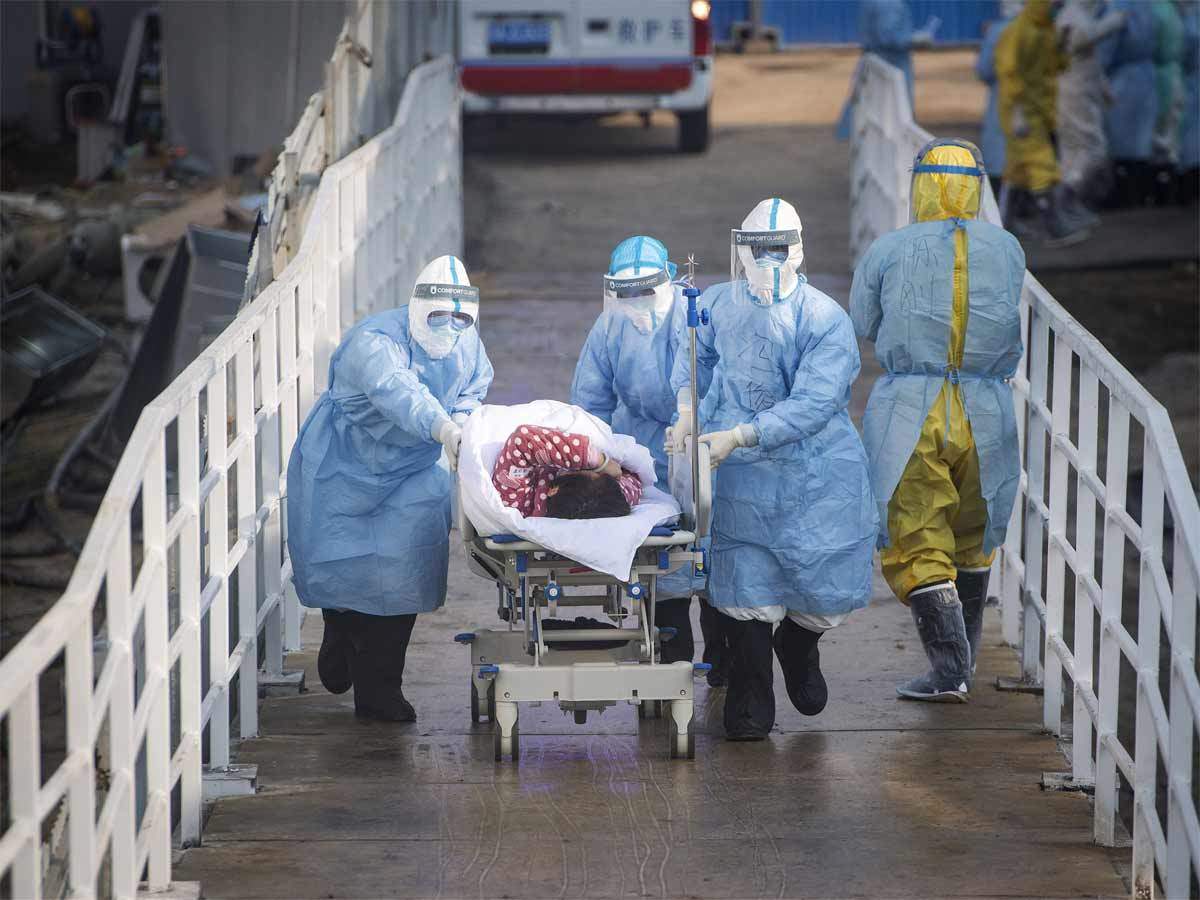AFFIXING CHINA’S LIABILITY FOR THE SPREAD OF COVID-19
BY SIDDHARTH SONI
With the novel coronavirus bringing whole world to a standstill, it is said that this virus has its origins in the wet markets of Wuhan, China. In the month of December 2019, few doctors from Wuhan identified that a new strain of the Coronavirus family, SARS-CoV-2, was causing respiratory problems in humans. It is being alleged that Chinese government is responsible for not containing the virus when it was identified at its first instance. This negligence by the Chinese government led to the virus being mass-proliferated and progressing to different parts of the world. This has sparked debates all around the globe. This article would focus on affixing China’s liability for the trans-boundary harm that this novel coronavirus has caused.

State Responsibility of China
The customary rules for affixing state responsibility on states are included under the 2001 Draft Articles on the Responsibility of States for Wrongful Acts (‘ARSIWA’). Wrongful acts which are attributable to the state and which also constitute a breach of international obligations are defined in Article 2 of this document. Article 4 of the same document focusses on the state’s responsibility if the act is perpetrated through legislative, executive or judicial branches of the government. The information about the virus flowed from the Wuhan Institute of Virology (WIV) to the local Wuhan authorities, all being considered as the organs of the Chinese government. Stressing on the international obligations that the Chinese government has failed to commit to, it had failed to adhere with its due diligence obligations by not sharing relevant and timely information deliberately and through gag orders, ordering biotech companies to stop testing. Due diligence is a standard of good governance, assessing whether a state has done what was reasonably expected of it when responding to a harm or danger. China also seems to violate Article 14 of ILC Draft Articles by not fulfilling to promptly and transparently sharing information with the World Health Organisation in accordance with the International Health Regulations. The International Health Regulations, 2005 binds all the WHO signatories. The major focus of these health regulations is to report disease outbreaks rapidly and transparently.
Article 4 of the same health regulations mandates the establishment of a national IHR focal point by the government, which is used to timely notify about disease outbreaks. Article 5 requires a country to develop core capacities to ‘detect, assess, notify, and report events’ under the IHR. The Ministry of Health in China was designated as the focal point, while China also ensured that it’s public health capacity met the IHR requirements. Therefore, China had the infrastructure to respond to the COVID-19 outbreak more efficiently, under its primary obligations in the IHR. In accordance with Article 6(1) of these health regulations, a country is mandated to inform the WHO about the activities which can be considered as Public Health Emergencies of International concern. China claims to have informed the WHO about the outbreak of the virus, but actually informed about the same after a few days later, which constitutes to the non-fulfilment of its international obligations. China had refused to share the spread of the infection amongst the healthcare workers, which makes it liable under Article 7 of the IHR.
Law on Trans Boundary Environmental Damage
The law on Trans Boundary harm was first discussed in the Trail Smelter arbitration, which states that sovereignty of a state us not absolute in nature and that it cannot be used to harm another nations state. Principle 21 of the Stockholm Declaration further clarified rather went on to impose responsibility upon nation States for ensuring that activities within their jurisdiction or control do not cause damage to the environment of other States or of areas beyond the limits of national jurisdiction. This principle was upheld by the International Court of Justice in its Nuclear Weapons Advisory Opinion, wherein it stated the due diligence obligations upon nation states in Trans boundary contexts. In yet another case of Ecuador vs. Columbia (2008), ICJ focussed on the international obligations of Columbia which led to the spray of a herbicide in the territory of Ecuador. Under Article 3 of the International Law Commission’s on Transboundary harm, China can be held accountable for violating its duty of due diligence and not taking appropriate measures to prevent a trans boundary harm.
Jurisdictional Challenges
Article 75 of the WHO constitution states that ICJ can have jurisdiction over the settlement of disputes relating to the WHO Constitution. The jurisdictional challenge in today’s times would be that of the fact that disputant parties are free to choose any mode of dispute settlement instead triggering ICJ jurisdiction. In this context, it would be very challenging for the states wishing to impose liability on China. International adjudication is consent-based is extremely crucial to drag up a nation to the world court for non-fulfilment of its international obligations. In this context, China would never consent on referring its case to the International Court of Justice. Despite the challenges, some states have tried to make China liable for its actions. Missouri, a state in the United States was the first ones to sue China alleging suppression of information, arrest of several whistle-blowers and spreading the disease that has led to the cause of huge amount of lives and has also caused an ‘irreparable damage’ to several nations.
China can also be held guilty under Article 7(1) of the Statute of the International Criminal Court, which talks about ‘other inhumane acts of a similar character intentionally causing great suffering, or serious injury to body or to mental or physical health” as mentioned under ‘crimes against humanity.’ The prosecutor’s office has authority to conduct proceedings proprio motu under Article 15. Though China is a non-signatory to the Rome Statute, the prosecutor can be allowed to conduct investigations on the same.
Also, if United States wished to bring a lawsuit against China, courts in the United States would not have the jurisdiction since countries are protected from being sued in US courts by the Foreign Sovereign Immunities Act (FSIA), which was first enacted in 1976.
Appropriate forum to ascertain China’s Responsibility
With the jurisdictional challenges in hand, the International Criminal Court (ICC) seems to be the perfect forum to affix China’s liability for the outbreak. But there seems to be an issue of ICC’s Jurisdictional Regime. The ICC is concerned with trying and punishing individuals (and not States) who commit crimes against international law. The Nuremberg Tribunal in 1946 ascertained that “Crimes against international law are committed by men, not by abstract entities, and only by punishing individuals who commit such crimes can the provisions of international law be enforced.” Article 25 of the Rome Statute signifies philosophy of ‘individual criminal responsibility’. To ascertain that China is responsible for the spread of the outbreak, the need of identifying the individuals who perpetrated the crime of creating/spreading the COVID-19 virus arises. Recently, pleas were filed before the ICC by individuals from both the United States and India. Individuals who have been referred to in this plea are the President of China, the General of the Chinese Army, and the Director of the Wuhan Institute of Virology.
Despite these challenges, procedural and investigative difficulties cannot be ignored. Another challenge would be that the jurisdiction of the court can be affixed only on those who are state parties to the Rome Statute. China, not being one of the state parties, has to accede to the jurisdiction of the ICC in this case, which it would never do. However, under Article 13(b) of the Rome Statute, the Security Council is empowered to refer the matter in hand to the prosecutor of ICC. Also, the UN General Assembly’s ‘Uniting for Peace’ resolution can be used to a great extent that allows for the General Assembly to consider the matter in question if the Security Council ‘fails’ to discharge its duty due to lack of unanimity. While not explicitly stated in the Rome Statute, academically speaking, the Uniting for Peace resolution could be invoked to refer a case involving a non-State Party to the ICC.
Conclusion
Despite the jurisdictional challenges that the nations would face to bring China’s guilt in front of the world, the Law on Trans Boundary Environmental Damage can be utilized to a great extent. After analysing the legal liability of China, it is clear that China has somewhere failed to observe due diligence. If it had done so, the world would have been a better place to live in. While undertaking commercial activities in the wet markets of Wuhan, where meat of animals is consumed in huge quantities, China has failed to comply with its international obligations under the International Health regulations, 2005 and also provisions relating to State Responsibility.
Disclaimer: The views and opinions expressed in this article are those of the authors and do not necessarily reflect the official policy or position of any agency of the Indian government. Examples of analysis performed within this article are only examples. They should not be utilized in real-world analytic products as they are based only on very limited and dated open source information. Assumptions made within the analysis are not reflective of the position of any Indian government State.
The author is a 2nd-year law student at Symbiosis Law School, Pune.


